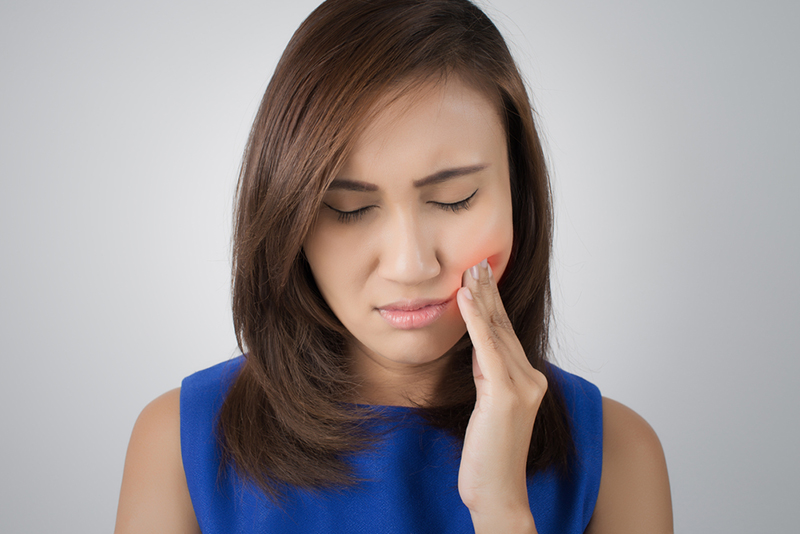Sensitive teeth can be very painful. For some, the pain gets so bad it feels like there’s either some serious tooth decay happening or it’s time for an emergency root canal.
“When you have sensitive teeth, certain activities, such as brushing, flossing, eating and drinking, can cause sharp, temporary pain in your teeth” explained Doctor Alan Carr in a piece he wrote for the Mayo Clinic.
Ouch! It often means taking multiple painkillers just to be able to concentrate or complete daily tasks, but there are other ways to tackle the condition.
What is tooth sensitivity?
“Sensitive teeth are typically the result of worn tooth enamel or exposed tooth roots,” Dr Carr said.
“Sometimes, however, tooth discomfort is caused by other factors, such as a cavity, a cracked or chipped tooth, a recently placed filling or a side effect of other dental procedures, such as bleaching.”
According to Brisbane dentist Doctor Rand Bernard it’s “the sensation that occurs when the middle portion of the tooth (dentine) is directly affected by a stimulus, such as cold air, acid, mechanical touch or heat”.
If the dentine becomes exposed because enamel has worn away it can lead to sensitivity “as there are millions of tiny tubules within the dentine that transmit sensation”.
For the record, the technical term for sensitive teeth is dentine hypersensitivity.
What causes it?
So, how does this part of the tooth end up being exposed to the outside world? Well, there are a number of factors but some of the most common include:
- Loss of tissue height in the gums covering the tooth
- Gum recession
- Brushing teeth too aggressively or not using a soft enough tooth brush
- Damage to the gums caused by clenching or grinding
- Gum disease (such as gingivitis and periodontitis)
- Acid, reflux and acidic drinks (if you’re a lemon water drinker, make sure to rinse your mouth out afterwards)
- Decay
- Damaged fillings.
The remedies
Dr Bernard recommends a thorough check up, to diagnose any underlying causes of sensitivity and to rule out other serious problems.
His common treatments for sensitive teeth include:
- Sensitive toothpaste. This helps to block the plain. It also frees up minerals to repair damaged enamel or “remineralise the tooth”. Tip: if you need a quick fix, put a little sensitive toothpaste on the problem area
- Tooth mousse. A “remineralising creme” that’s available at dental clinics. According to the Oral Health Cooperative Research Centre it was developed by scientists at the Melbourne Dental School
- Modifying oral hygiene or brushing techniques. You might have to switch to a softer toothbrush
- Fluoride gels. These come in rinses, stronger toothpastes and oral creams
- Diet changes. Reducing intake of acidic food and drink or changing your diet to avoid reflux.
For severe sensitivity Dr Carr recommends:
- Desensitising or bonding. Occasionally, exposed root surfaces can be treated by applying bonding resin to sensitive root surfaces
- Surgical gum graft. A small amount of gum tissue can be taken from elsewhere in your mouth and attached to the affected site to “protect exposed roots and reduce sensitivity”
- Root canal. If you’re in severe pain and other treatments aren’t working, your dentist might recommend a root canal. It’s a significant treatment but Dr Carr says “it’s considered the most successful technique for eliminating tooth sensitivity”.





